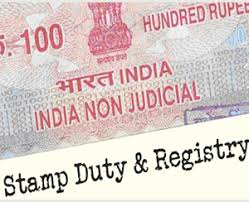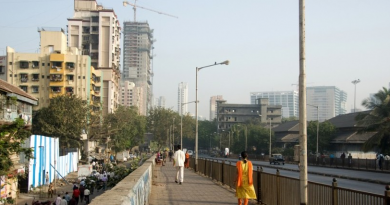Stamp Duty cannot be charged for…
Stamp Duty cannot be charged for past transactions rules Bombay HC

The Bombay High Court, recently, had an occasion to decide on this issue and has held that the recovery of stamp duty for past transactions at the time of subsequent sale, is not proper. This decision will bring relief to the buyers of old resale properties.
Recovery of stamp duty on past transactions:
A lady named Lajwanti Randhawa had inherited a posh 3,300-sq-ft apartment in Tahnee Heights Cooperative Housing Society at Napean Sea Road in Mumbai, from her father along with other legal heirs. This apartment was bought in 1979 and an agreement was executed on a stamp paper of Rs 10 then. Back then, an agreement for sale could be executed on a stamp paper of Rs five. This agreement was also not registered.
This flat was auctioned for Rs 38 crores, in 2018. When the buyer, Vijay Jindal, approached the registration office for registration of the documents, the collector of stamps refused to register the new sale agreement pursuant to the auction and demanded stamp duty on the chain of agreements, contending that it was not adequately stamped. The stamp duty alone was around Rs two crores, on the basis of the present ready reckoner rates. As the property was bought through a court receiver auction, the buyer approached the Bombay High Court, to direct the sellers to bear the liability on past stamp duty, as one of the sellers had refused to bear the cost.
Bombay HC decision on the retrospective applicability of stamp duty on past transactions
While deciding the dispute, justice Gautam Patel, took an out-of-the-box stand and held that the stamp duty authorities had no right to collect the stamp duty, for inadequately stamped past documents of any property, at the time of registration of its subsequent sale. Patel observed that the stamp duty was payable with respect to an instrument and not with respect to a transaction, as per the provisions of the Indian Stamp Act.
He also held that stamp duty cannot be recovered at the present rate, with respect to past instruments which were executed at a time when the instrument was not liable for stamp duty, as these documents could not be treated as ‘unstamped’ or ‘inadequately stamped’ at the relevant time. He also observed that as there were no clear cut provisions in the law, about the recovery of stamp duty retrospectively, the stamp duty authorities have no authority to insist on payment of stamp duty on such past instruments that formed part of the chain of documents.
The court also observed that even if the instrument was subject to stamp duty, the rate to be applied would be the rate at which the relevant document was to be stamped and in no case can the same be required to be stamped at current stamp duty rates.
Present buyer not liable to pay stamp duty on past transactions
This decision has brought clarity and will help the buyers of old flats on which adequate stamp duty was not paid in the past. This will benefit lakhs of flat buyers while buying old properties, as there are many properties on which adequate duty was not paid at the time of their purchase.
If one reads the decision carefully, one will find that even in case the old instrument was executed when stamp duty was payable but was not paid, the present buyer cannot be burned with the additional cost of stamp duty, for old ‘unstamped’ or ‘not adequately stamped’ deals.
This decision has also clarified that the arrears of stamp duty, even if is required to be paid, has to be paid with respect to the rate applicable at the time of execution of the old document and not at the rates applicable at the time of its subsequent sale. So, effectively, the stamp duty authorities cannot refuse to register the agreement for properties being purchased now under resale, even in cases where the earlier instrument/agreement was unregistered or not properly or insufficiently stamped as per the prevailing rate at the relevant time.


